
- africano
- albanés
- amárico
- Arábica
- armenio
- azerbaiyano
- vasco
- bielorruso
- bengalí
- bosnio
- búlgaro
- catalán
- cebuano
- Porcelana
- China (Taiwán)
- corso
- croata
- checo
- danés
- Holandés
- Inglés
- esperanto
- estonio
- finlandés
- Francés
- frisio
- gallego
- georgiano
- Alemán
- Griego
- gujarati
- criollo haitiano
- hausa
- hawaiano
- hebreo
- No
- Miao
- húngaro
- islandés
- igbo
- indonesio
- irlandesa
- italiano
- japonés
- javanés
- canarés
- kazajo
- jemer
- ruandés
- coreano
- kurdo
- Kirguistán
- tuberculosis
- latín
- letón
- lituano
- luxemburgués
- macedónio
- Malgashi
- malayo
- Malayalam
- maltés
- maorí
- marathi
- mongol
- Birmania
- nepalí
- noruego
- noruego
- occitano
- pastún
- persa
- Polaco
- portugués
- punjabi
- rumano
- ruso
- samoano
- gaélico escocés
- serbio
- Inglés
- Shona
- Sindhi
- cingalés
- eslovaco
- esloveno
- somalí
- Español
- sundanés
- swahili
- sueco
- tagalo
- tayiko
- Tamil
- tártaro
- telugu
- tailandés
- turco
- turcomano
- ucranio
- urdu
- uigur
- uzbeko
- vietnamita
- galés
- Ayuda
- yídish
- Yoruba
- zulú

Bulk Glass Sand & Clear Pebbles for Decorative Use
The Strategic Significance of Glass Sand in Modern Industries
In the rapidly evolving landscape of industrial raw materials and decorative aggregates, glass sand has emerged as a material of profound strategic importance. Derived from recycled glass, this versatile product offers an eco-friendly and high-performance alternative to traditional sands in myriad applications. Its unique physical and chemical properties, coupled with significant environmental benefits, position it as a critical component for industries ranging from water treatment and construction to specialized decorative arts.
The global market for recycled glass products, including glass sand, is experiencing robust growth, driven by increasing regulatory pressures for sustainability, advancements in recycling technologies, and a burgeoning demand for high-quality, inert materials. Industry reports project a Compound Annual Growth Rate (CAGR) of over 6% for the recycled glass market, reaching significant valuations by the end of the decade. This growth underscores a widespread industry shift towards circular economy principles, where waste materials are transformed into valuable resources. Key drivers include its inert nature, superior filtration capabilities compared to silica sand, and aesthetic versatility which makes it ideal for applications requiring `bulk glass pebbles` and `clear glass stones for vases`.
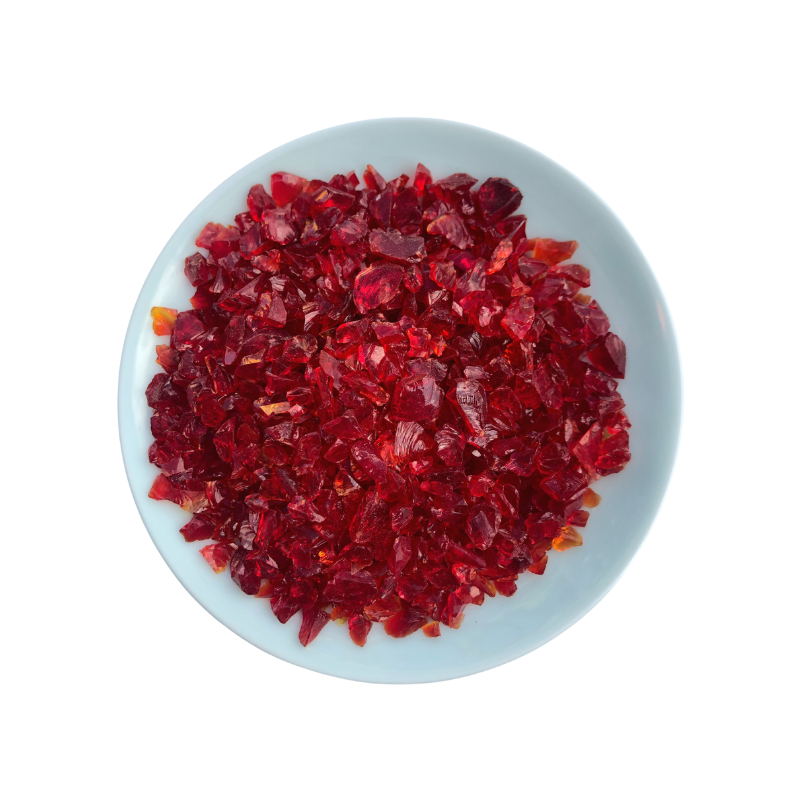
Fig 1: Assorted colors and textures of glass sand for various industrial and decorative uses.
Manufacturing Process Flow for High-Quality Glass Sand
The production of high-grade glass sand is a meticulously controlled multi-stage process designed to ensure product purity, consistent particle size distribution, and optimal performance characteristics. Our manufacturing philosophy strictly adheres to international quality standards such as ISO 9001:2015 and ASTM specifications, guaranteeing reliability for demanding industrial applications.
- Raw Material Sourcing and Pre-Sorting: The process begins with the collection of post-consumer or industrial waste glass. This cullet is initially sorted to remove large contaminants like metals, plastics, and ceramics, and often segregated by color to produce clear, green, or amber glass sand, among others.
- Washing and Contaminant Removal: The pre-sorted cullet undergoes a rigorous washing process using advanced flotation and rinsing techniques. This step is crucial for removing organic residues, labels, and fine inorganic contaminants, ensuring a high purity level essential for technical applications.
- Crushing and Sizing: Clean cullet is then fed into specialized crushing equipment, often multi-stage crushers or hammer mills, designed to break the glass into sand-like particles while minimizing the creation of excessive fines. This mechanical process is calibrated to achieve specific particle sizes, critical for applications like filtration or abrasive blasting.
- Screening and Classification: Post-crushing, the material passes through a series of vibratory screens or air classifiers. This highly precise step segregates the glass sand into various granulometric fractions, ensuring tight adherence to specified particle size distribution (PSD) parameters. For example, filtration grades often require a Uniformity Coefficient (UC) below 1.5.
- Drying and Final Quality Control: The classified glass sand is then dried to achieve a moisture content typically below 0.1% to prevent clumping and facilitate handling. Before packaging, each batch undergoes stringent quality control testing, including chemical composition analysis (e.g., XRF spectroscopy for SiO2 content, heavy metal presence), particle size analysis (e.g., laser diffraction), and physical property checks (e.g., density, hardness). These tests confirm compliance with standards like ANSI/AWWA B100 for filtration media.
- Packaging: The finished product is then packaged in various forms, from 25kg bags to large bulk bags (e.g., 1-ton supersacks), tailored to client requirements, ensuring product integrity during transport and storage.
This meticulous process ensures that our glass sand meets the highest standards for industries such as petrochemical, metallurgy, municipal water supply & drainage, construction, and specialized decorative markets, offering enhanced service life and superior performance.
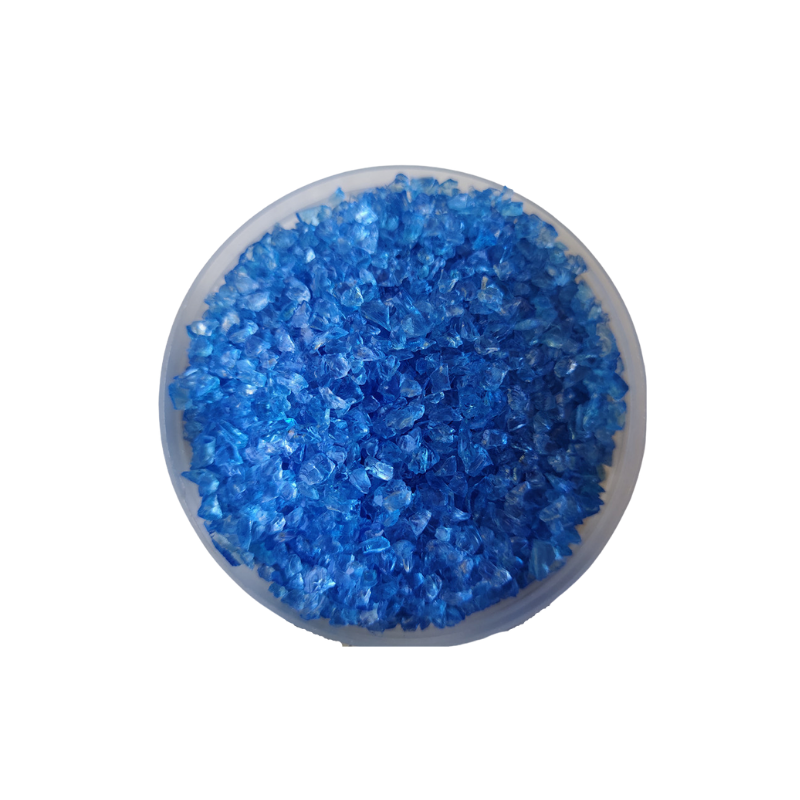
Fig 2: Illustrative diagram of the multi-stage glass sand manufacturing process.
Technical Specifications and Performance Parameters of Decorative Glass Sand
Our decorative glass sand is engineered to deliver consistent quality and performance across a spectrum of applications. The following table details key technical specifications, demonstrating its suitability for demanding industrial and aesthetic uses. These parameters are rigorously monitored in accordance with established industry benchmarks.
Product Specification Table: Decorative Glass Sand
| Parameter | Typical Value | Test Standard / Remark |
|---|---|---|
| Material Composition | 100% Recycled Glass (Soda-Lime) | SiO2 > 70%, minimal heavy metals |
| Particle Size Range | 0.1 mm - 3.0 mm (various grades) | ASTM D422 (Sieve Analysis), customized on request |
| Bulk Density (Loose) | 1.40 - 1.60 g/cm³ | ASTM C29 |
| Specific Gravity | 2.45 - 2.55 g/cm³ | ASTM C128 |
| Mohs Hardness | 5.5 - 6.5 | Comparative scale |
| Acid Solubility | Negligible (≤ 0.5%) | ISO 787-3 (Resistance to acids) |
| Alkali Solubility | Negligible (≤ 1.0%) | ISO 787-4 (Resistance to alkalis) |
| Color Options | Clear, White, Blue, Green, Amber, Black, Mixed | Visual inspection, spectrometer for color consistency |
| Moisture Content | < 0.1% | ASTM D4643 |
| Toxicity | Non-toxic, inert | MSDS available, complies with relevant environmental standards |
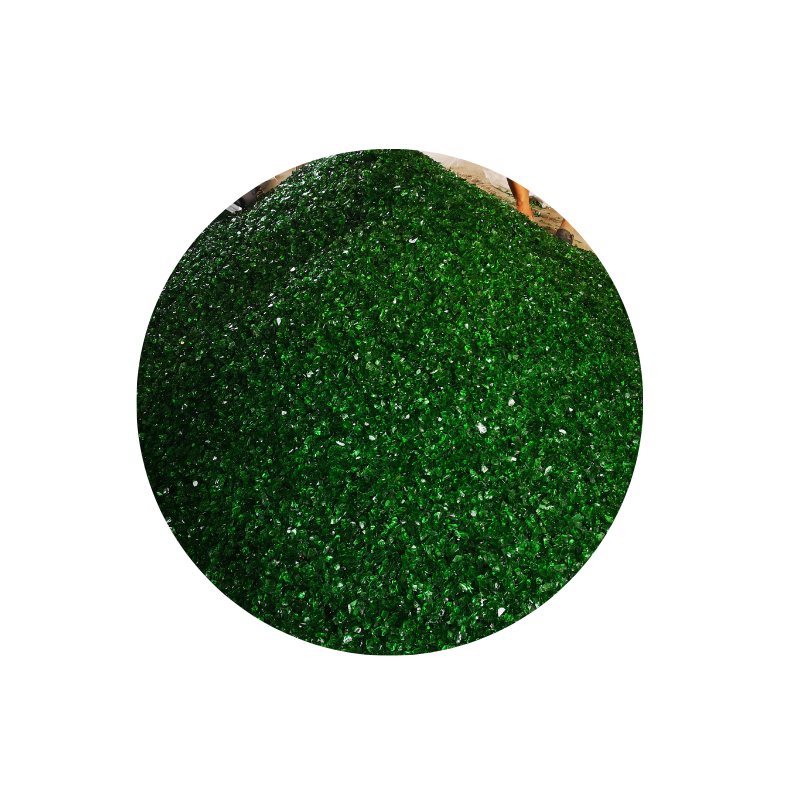
Fig 3: Close-up of meticulously sorted clear glass sand granules, showcasing uniform particle size.
Technical Advantages and Performance Benefits of Glass Sand
The inherent properties of glass sand confer a multitude of technical advantages that make it a superior choice over conventional aggregates in numerous industrial contexts. These benefits translate directly into enhanced operational efficiency, reduced maintenance, and improved product lifespan.
- Superior Filtration Performance: In water and wastewater treatment, glass sand exhibits a 30% greater permeability and 10% lower density than traditional silica sand. Its angular yet smooth particle shape prevents biofouling and clumping, leading to deeper bed penetration and more efficient backwashing cycles. This translates into significant energy saving, reduced water consumption during backwash, and extended filter media service life, often exceeding 5-7 years in continuous operation.
- Exceptional Chemical Inertness: Being composed of recycled soda-lime glass, glass sand is highly resistant to chemical attack from acids, alkalis, and other corrosive agents. This makes it ideal for use in aggressive environments such as chemical processing, certain petrochemical applications, and as an aggregate in specialized concrete formulations where corrosion resistance is paramount. Its non-reactive nature also ensures it does not leach harmful substances into the environment, aligning with strict environmental regulations.
- Environmental Sustainability: Utilizing glass sand directly contributes to a circular economy by diverting waste glass from landfills. This process significantly reduces energy consumption and greenhouse gas emissions compared to manufacturing new glass or mining virgin silica. Each ton of recycled glass used saves approximately 1.2 tons of raw materials and reduces CO2 emissions by about 300 kg.
- Aesthetic Versatility: Available in a spectrum of colors—from crystal clear and pristine white to vibrant blues, greens, and sophisticated blacks—decorative glass sand provides unparalleled aesthetic flexibility. This makes it a preferred choice for landscaping, architectural finishes, terrazzo flooring, and as an infill for gabion walls, where visual appeal is critical. Its reflective properties can also enhance luminosity in certain applications.
- Durability and Hardness: With a Mohs hardness of 5.5-6.5, glass sand offers excellent abrasion resistance, making it suitable for applications like abrasive blasting (e.g., in metallurgy for surface preparation) or as a resilient component in permeable pavements and sports surfacing.
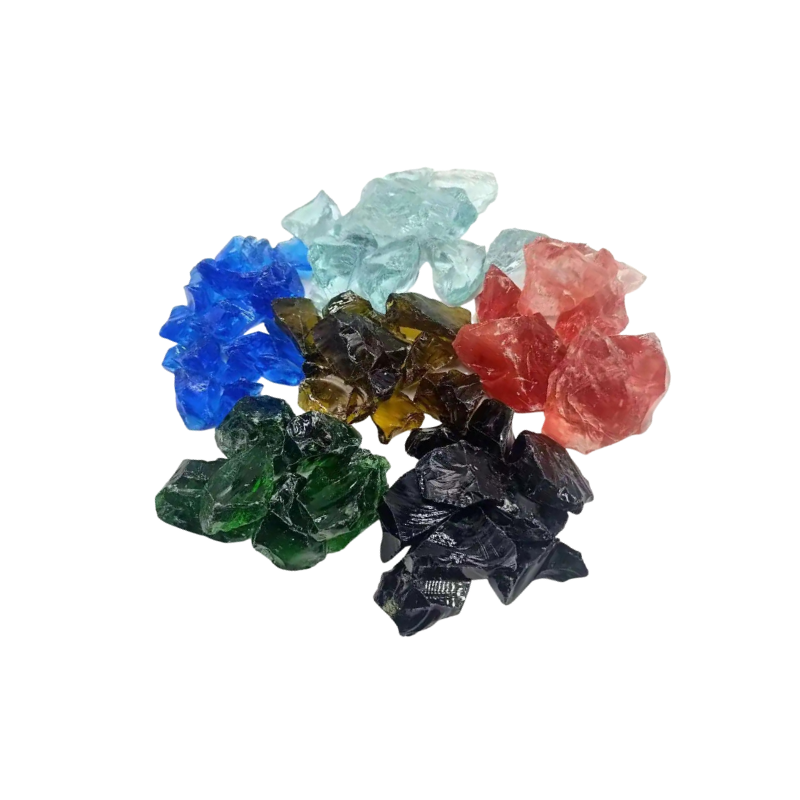
Fig 4: Glass sand being used in an advanced water filtration system, highlighting its clear and inert qualities.
Diverse Application Scenarios of Glass Sand Across Industries
The versatility and superior performance characteristics of glass sand make it an invaluable resource across a broad spectrum of industries and applications. Its unique combination of inertness, durability, and aesthetic appeal positions it as a preferred material in both functional and decorative contexts.
- Water and Wastewater Treatment: As a filter media, glass sand significantly outperforms traditional silica sand. Its smoother surface prevents biofilm accumulation, reduces channeling, and allows for more effective backwashing, leading to lower operational costs and enhanced water purity. It is widely used in municipal water treatment plants, industrial process water filtration (e.g., petrochemical, food & beverage), and swimming pool filtration systems.
- Abrasive Blasting: For surface preparation in metallurgy, automotive, and construction sectors, glass sand serves as a non-toxic, non-silicosis-inducing abrasive. Its angular profile provides an aggressive cleaning action for rust, paint, and scale removal, while its inertness ensures no contamination of the blasted surface.
- Construction and Infrastructure: Used as an aggregate in asphalt, concrete, and permeable paving systems, glass sand improves drainage, reduces urban heat island effect, and offers an environmentally friendly alternative. In specialty mortars and grouts, it provides chemical resistance and aesthetic qualities.
- Landscaping and Hardscaping: Its diverse color palette and reflective properties make glass sand ideal for decorative ground cover, pathways, rock gardens, and infill for gabion baskets. It creates visually striking effects and is durable against weathering.
- Aquarium and Terrarium Substrates: For aquatic and terrestrial habitats, inert glass sand provides a safe, non-leaching, and aesthetically pleasing substrate that is easy to clean and does not alter water chemistry. This also applies to decorative uses such as `clear glass stones for vases` which require clean, inert materials.
- Decorative Arts and Crafts: From candle making and vase fillers to epoxy resin art and mosaics, glass sand offers unique textual and visual effects. The availability of `bulk glass pebbles` further extends its use in large-scale decorative projects.
- Sports and Recreation: Infill for artificial turf systems, equestrian arena footing, or beach volleyball courts benefits from glass sand's drainage properties, consistency, and resistance to compaction.
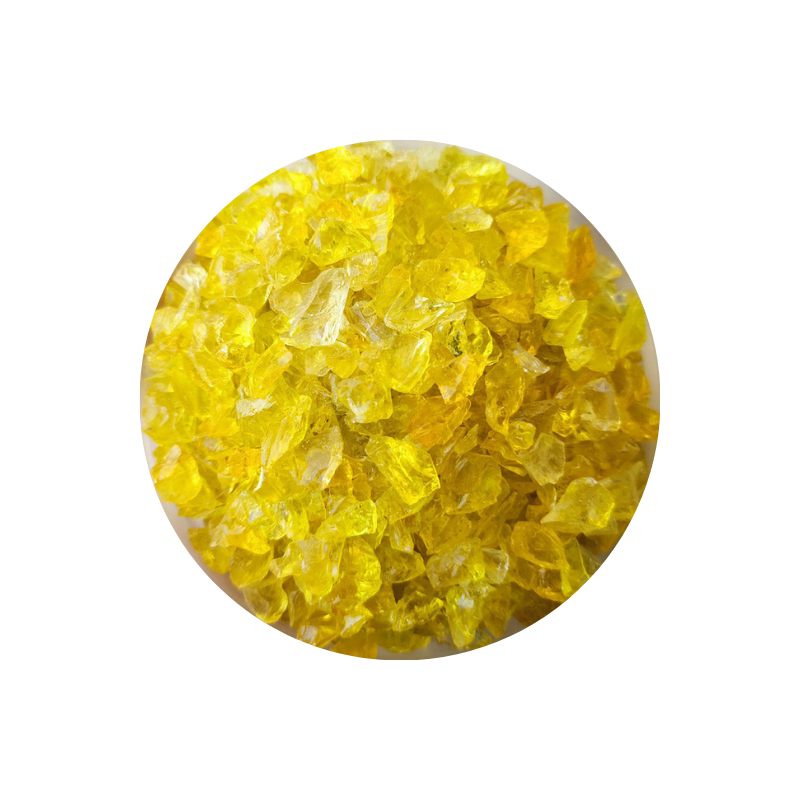
Fig 5: A landscaping project featuring vibrant blue glass sand as decorative ground cover, demonstrating aesthetic appeal.
Vendor Comparison: Selecting Your Glass Sand Supplier
Choosing the right supplier for glass sand is critical for ensuring product quality, consistent supply, and cost-effectiveness. A comprehensive evaluation based on key criteria helps in making an informed decision, ensuring that the chosen vendor aligns with your project's specific requirements and long-term objectives.
Glass Sand Supplier Comparison Table
| Criterion | Our Company (Shunshun Mining) | Vendor B (Hypothetical) | Vendor C (Hypothetical) |
|---|---|---|---|
| Product Quality & Purity | High (ISO 9001, ASTM-compliant, | Medium (Occasional inconsistencies, | Variable (May contain higher impurities, |
| Particle Size Consistency | Excellent (Tight PSD control, customizable) | Good (Standard grades, limited customization) | Average (Wider PSD range) |
| Color Range & Consistency | Comprehensive (Complete color specs, high consistency) | Limited (Basic colors, minor variations) | Basic (Few colors, noticeable batch variations) |
| Certifications & Compliance | ISO 9001:2015, ISO 14001, CE, MSDS, ROHS | ISO 9001 (Basic) | None stated or limited |
| Customization Capabilities | Extensive (Particle size, color, coatings, packaging) | Moderate (Size/color adjustments) | Limited (Standard products only) |
| Lead Time & Logistics | Reliable (Global logistics, efficient delivery) | Standard (Regional delivery) | Potentially long, less reliable |
| Technical Support & Service | Dedicated team, post-sales support | Basic inquiry support | Minimal or none |
Customized Solutions for Specialized Glass Sand Applications
Recognizing that standard product offerings may not always meet the unique demands of every project, we specialize in providing tailored glass sand solutions. Our technical team works closely with clients to develop custom specifications that perfectly align with intricate application requirements, ensuring optimal performance and integration.
- Precision Particle Size Distribution (PSD): We can engineer glass sand to a highly specific PSD, which is critical for filtration media, precision abrasive applications, or as a functional filler where flow characteristics are paramount. Our advanced screening technology allows for tight tolerance control, ensuring uniformity coefficient (UC) values that meet stringent engineering specifications.
- Bespoke Color and Blending: Beyond our standard color range, we offer custom color matching and blending services. Whether it's a specific shade for architectural concrete, a unique blend for landscaping features, or specific `clear glass stones for vases` for a distinct aesthetic, our capabilities extend to producing virtually any color combination required.
- Surface Coatings and Treatments: For enhanced performance in niche applications, we can apply specialized surface coatings. Examples include hydrophobic coatings for improved water repellency, anti-microbial treatments for sensitive environments, or adhesion promoters for composites. These treatments can alter the surface chemistry of the glass sand particles to interact optimally with specific binders or surrounding matrices.
- Packaging Solutions: From small, branded bags for retail to large `bulk glass pebbles` in flexible intermediate bulk container111s (FIBCs), we offer diverse packaging options. Custom labeling, specific weights, and moisture-barrier packaging are routinely provided to meet client logistics and storage needs.
- Chemical Purity Customization: While our standard glass sand is inherently pure, for highly sensitive applications (e.g., in pharmaceutical or high-tech manufacturing), we can conduct additional purification steps to reduce trace elements to extremely low levels, ensuring compliance with the most rigorous purity requirements.
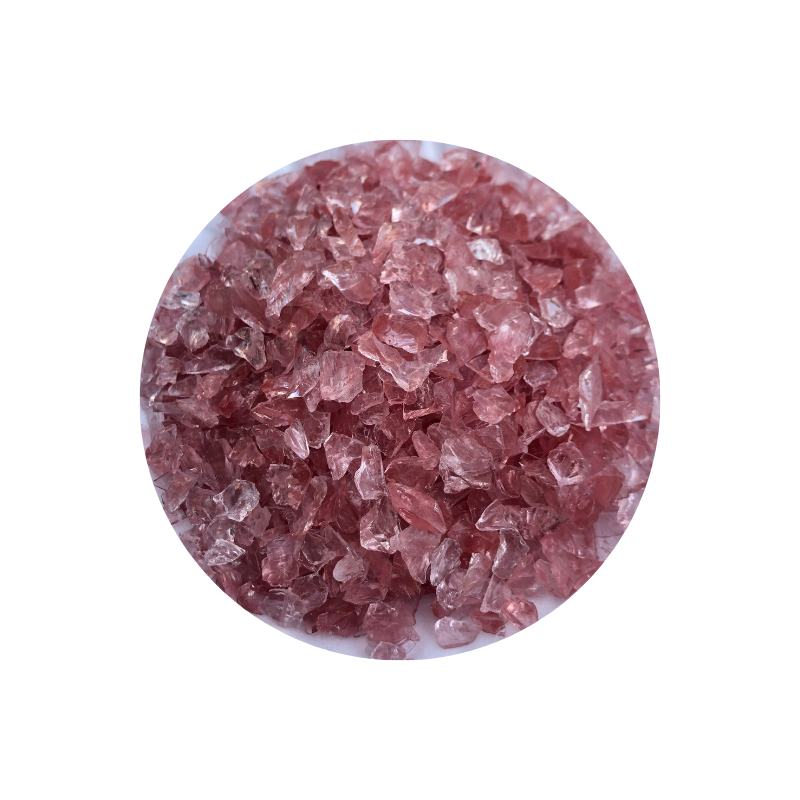
Fig 6: Samples of custom-colored glass sand, demonstrating the range of aesthetic options available.
Application Case Studies: Glass Sand in Action
Our expertise in glass sand extends beyond mere supply; we partner with our clients to deliver solutions that address real-world challenges. The following case studies exemplify the tangible benefits achieved through the strategic application of our products.
Case Study 1: Municipal Water Treatment Plant Upgrade
- Client: Major Metropolitan Water Authority, APAC Region.
- Challenge: An aging water treatment plant faced increasing operational costs due to frequent backwashing cycles and premature filter media replacement of traditional silica sand, leading to higher energy consumption and water wastage. Turbidity removal efficiency was also sub-optimal.
- Solution: We recommended replacing the existing filter media with our high-purity, angular glass sand. Specifically, a grade with a Uniformity Coefficient (UC) of 1.3 was chosen to optimize bed stratification and filtration depth.
- Results: After implementation, the plant reported a 25% reduction in backwash frequency and a 30% decrease in water consumption for backwashing, translating to significant energy saving. Turbidity removal improved by 15%, extending filter runs by an average of 40%. The client noted the improved clarity and taste of treated water, alongside a projected 50% longer service life for the filter media. This project garnered positive customer feedback on improved water quality and operational savings.
Case Study 2: Eco-Friendly Abrasive for Shipyard Maintenance
- Client: International Ship Repair & Maintenance Yard, EMEA Region.
- Challenge: The shipyard needed an effective abrasive blasting medium for hull preparation that was environmentally benign, non-silicosis-inducing, and offered consistent surface profiles. Traditional media presented disposal challenges and health concerns.
- Solution: We supplied a specific grade of abrasive glass sand, engineered for medium to heavy rust and paint removal. Its angular particles provided the necessary cutting action without embedding in the substrate.
- Results: The shipyard achieved a cleaner, more uniform surface profile (SA 2.5 standard) in 20% less time compared to previous methods, reducing labor costs. Crucially, the non-toxic nature of the glass sand significantly improved worker safety and reduced waste disposal complexities, earning praise from the environmental compliance department. The material proved effective in removing marine biofouling and deteriorated paint, preparing surfaces perfectly for new anti-corrosion coatings.
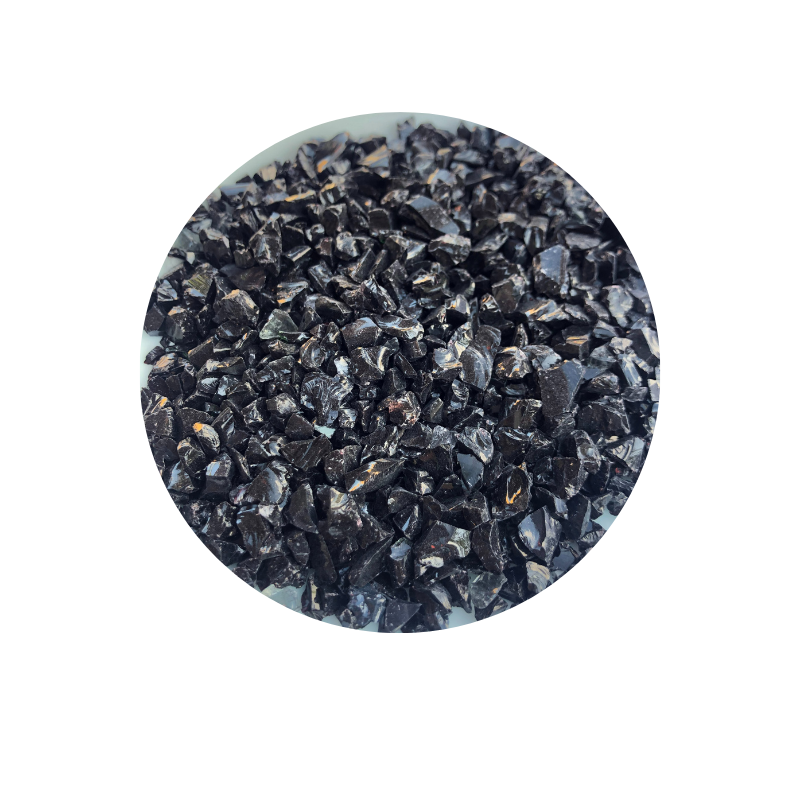
Fig 7: A treated water sample demonstrating clarity after filtration using glass sand media.
Commitment to Standards: Certifications and Authoritative Endorsements
Our dedication to delivering unparalleled quality and reliability in glass sand products is underscored by our adherence to stringent international standards and our transparent operational practices. We believe that demonstrating Expertise, Experience, Authoritativeness, and Trustworthiness () is paramount for B2B partnerships.
- ISO 9001:2015 Certified Quality Management System: Our manufacturing facilities operate under a certified quality management system, ensuring consistent product quality from raw material sourcing to final delivery. This certification reflects our commitment to continuous improvement and customer satisfaction.
- ISO 14001:2015 Environmental Management System: As a producer of recycled materials, environmental stewardship is central to our operations. Our ISO 14001 certification demonstrates our proactive approach to managing environmental impacts and promoting sustainable practices throughout our supply chain.
- Compliance with Industry-Specific Standards: Our glass sand products comply with relevant industry standards such as ANSI/AWWA B100 (for filtration media), ASTM E11 (for sieve analysis), and OSHA standards for non-toxic materials, ensuring safety and performance in specialized applications.
- Strategic Partnerships: We have established long-term relationships with leading waste management companies, industrial recycling facilities, and major distributors globally. These partnerships validate our position as a trusted supplier and ensure a reliable, high-volume supply chain.
- Extensive Experience: With over 15 years in the recycled aggregate industry, our team possesses deep expertise in material science, processing technology, and application engineering specific to glass sand. This accumulated knowledge allows us to anticipate client needs and provide informed recommendations.
- Rigorous Third-Party Testing: All product batches undergo independent third-party testing for purity, particle size, and chemical composition to verify our internal quality control data and provide objective assurance to our clients. Test reports are available upon request.
Frequently Asked Questions (FAQ) about Glass Sand
- Q1: Is your glass sand truly 100% recycled?
- A: Yes, our glass sand is manufactured entirely from post-consumer and industrial recycled glass cullet, rigorously processed to remove impurities and ensure a sustainable product.
- Q2: What are the primary advantages of glass sand over traditional silica sand for filtration?
- A: Glass sand offers superior filtration efficiency due to its angular yet smoother particles, which resist biofouling and clumping. This leads to deeper bed penetration, longer filter runs, more efficient backwashing (saving water and energy), and a longer service life, typically 2-3 times longer than silica sand.
- Q3: Can your glass sand be customized for specific applications?
- A: Absolutely. We offer extensive customization for particle size distribution, color, and even specialized surface coatings to meet unique project requirements, whether for industrial filtration or decorative uses like `clear glass stones for vases`.
- Q4: Is glass sand safe for use in aquatic environments like aquariums?
- A: Yes, our glass sand is inert and non-toxic, meaning it will not leach chemicals or alter water chemistry, making it a safe and aesthetically pleasing substrate for aquariums and terrariums.
- Q5: What are the typical packaging options for bulk orders?
- A: For `bulk glass pebbles` and sand, we typically offer 1-ton (1000kg) FIBC (Flexible Intermediate Bulk Container) bags, often referred to as supersacks. We can also provide smaller 25kg or 50kg bags on pallets, or custom packaging solutions upon request.
Lead Time, Warranty, and Customer Support
At Shunshun Mining, we understand the critical importance of reliable supply chains and robust support systems for our B2B clients.
- Lead Time & Fulfillment: Standard orders for our decorative glass sand can typically be fulfilled and shipped within 7-14 business days, depending on order volume and destination. For customized solutions or exceptionally large quantities, lead times will be communicated clearly during the quotation process. Our logistics team works diligently to ensure timely and efficient delivery worldwide.
- Warranty Commitments: We provide a comprehensive product warranty guaranteeing that our glass sand meets all specified technical parameters and is free from manufacturing defects. This warranty typically covers a period of 12 months from the date of purchase, provided the product is stored and used in accordance with our guidelines. Full warranty details are available in our terms and conditions.
- Dedicated Customer Support: Our commitment to our clients extends far beyond the point of sale. We offer dedicated technical support from experienced engineers and sales professionals who are available to assist with product selection, application guidance, troubleshooting, and any post-sales inquiries. Our support channels include phone, email, and a dedicated online portal for quick and efficient communication.
Conclusion: The Future is Clear with Glass Sand
The increasing global emphasis on sustainability, coupled with the demand for high-performance industrial materials, positions glass sand as a cornerstone of modern manufacturing and infrastructure. Its unparalleled benefits in filtration, abrasive blasting, construction, and decorative applications, alongside its strong environmental credentials, make it an indispensable resource for forward-thinking industries. By choosing our expertly produced glass sand, businesses not only enhance their operational efficiency and product quality but also make a significant contribution to a more sustainable future. We invite you to explore the full potential of our decorative glass sand and collaborate with us to tailor solutions that meet your specific needs.
Authoritative References
- American Water Works Association (AWWA). (2018). ANSI/AWWA B100-18: Granular Filter Material.
- ASTM International. (2020). ASTM E11: Standard Specification for Woven Wire Test Sieve Cloth and Test Sieves.
- International Organization for Standardization (ISO). (2015). ISO 9001:2015 - Quality management systems — Requirements.
- International Organization for Standardization (ISO). (2015). ISO 14001:2015 - Environmental management systems — Requirements with guidance for use.
- Glass Recycling Coalition. (2022). Economic Benefits of Glass Recycling.
- U.S. Environmental Protection Agency (EPA). (2021). Municipal Solid Waste in the United States: Facts and Figures.
Compartir
-
Premium Glass Microbeads | Precision, Quality & Assorted SizesNoticiasSep.01,2025
-
Bulk Glass Sand & Clear Pebbles for Decorative UseNoticiasAug.31,2025
-
Perlite: Superior Aeration & Drainage for Healthier PlantsNoticiasAug.30,2025
-
Premium Silicon Carbide Grit for Superior Abrasive PowerNoticiasAug.29,2025
-
Premium Perlite: Boost Plant Growth with Superior DrainageNoticiasAug.28,2025
-
The Industrial Value of White Sand Quartz in Modern ManufacturingNoticiasAug.23,2025





